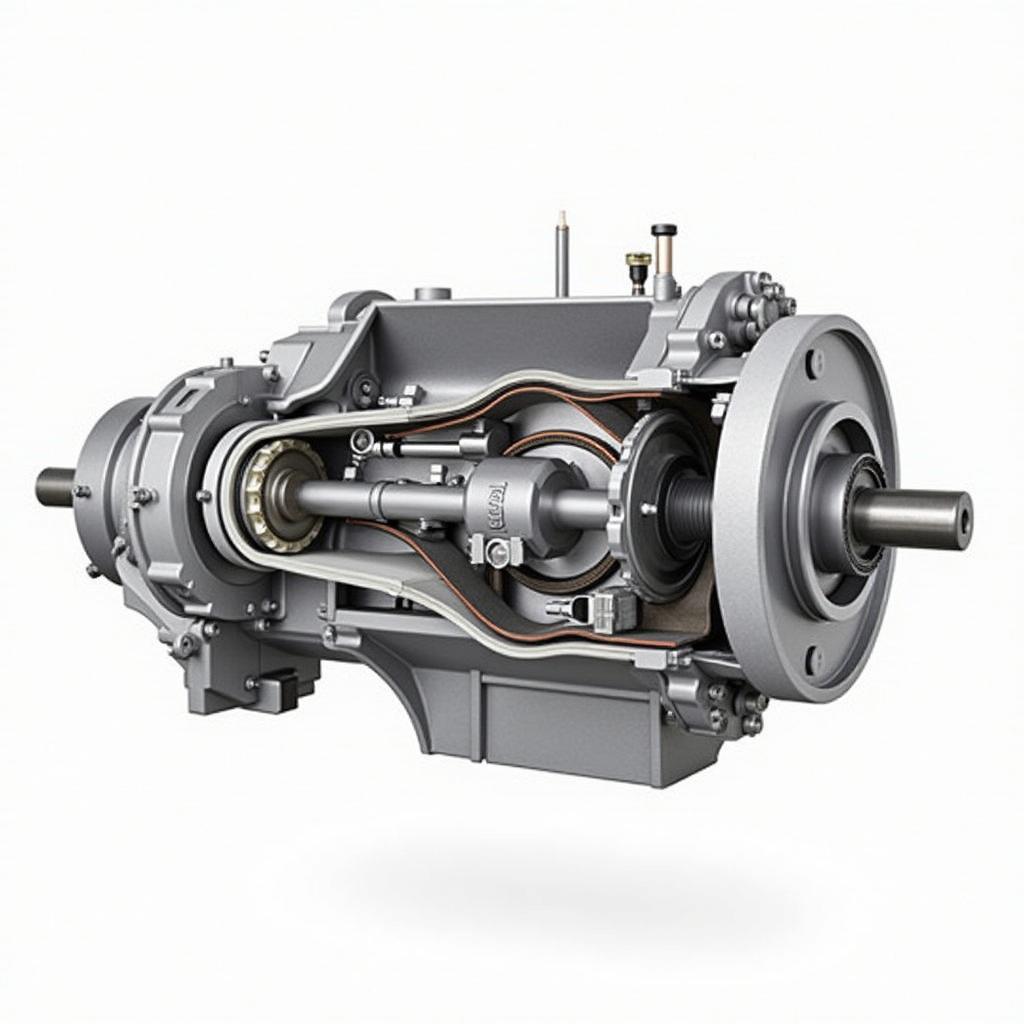The Toyota Cvt (Continuously Variable Transmission) is a popular choice for many car owners. It offers smooth acceleration and good fuel economy, but there are also a few things you should be aware of before opting for a car with a CVT.  Diagram of a Toyota CVT Transmission: Structure and Functionality
Diagram of a Toyota CVT Transmission: Structure and Functionality
What is a Toyota CVT Transmission?
A CVT transmission differs from conventional automatic transmissions in that it has no fixed gears. Instead, it uses a system of belts and variable pulleys to seamlessly switch between gear ratios. This provides smooth acceleration and helps optimize fuel consumption.
Pros and Cons of the Toyota CVT Transmission
Like any technology, the CVT transmission has its advantages and disadvantages. Here are some of them:
Advantages:
- Smoother Acceleration: The CVT transmission provides smooth and jerk-free acceleration because there are no fixed gear steps.
- Better Fuel Economy: Because the CVT transmission can always keep the engine in its optimal speed range, fuel consumption is improved compared to some conventional automatic transmissions.
Disadvantages:
- “Rubber Band Effect”: Some drivers find the responsiveness of the CVT transmission sluggish, especially when accelerating. This is often referred to as the “rubber band effect.”
- Noise Development: CVT transmissions can be louder than conventional automatic transmissions, especially under heavy load.
- Maintenance: Maintaining a CVT transmission can be more complex and expensive than a conventional automatic transmission.
What to Consider When Buying a Toyota with CVT
If you are interested in a Toyota with a CVT transmission, you should consider a few things:
- Test Drive: Be sure to take a test drive to see how the CVT transmission feels and whether it suits your driving style.
- Maintenance History: Have the vehicle’s maintenance history shown to you, especially if it is a used car. Pay attention to regular CVT transmission fluid changes.
- Warranty: Make sure the CVT transmission is covered by a warranty in case problems occur.
Frequently Asked Questions about the Toyota CVT Transmission
Q: How long does a Toyota CVT transmission last?
A: The lifespan of a CVT transmission depends on various factors, such as driving style and maintenance. With good care, however, CVT transmissions can last just as long as conventional automatic transmissions.
Q: Can a Toyota CVT transmission be repaired?
A: Yes, CVT transmissions can be repaired. However, repair can be complex and expensive, especially in the event of major damage.
Q: What type of oil does a Toyota CVT transmission require?
A: Toyota specifies a special CVT transmission fluid for its CVT transmissions. Never use conventional automatic transmission fluid in a Toyota CVT transmission.
Conclusion
The Toyota CVT transmission offers a number of advantages, including smooth acceleration and good fuel economy. However, it is important to be aware of the potential disadvantages before opting for a car with a CVT.
If you have further questions about the Toyota CVT transmission or need help deciding on the right transmission, please do not hesitate to contact us. Our auto repair experts are available around the clock. Did you know that we also offer information on other Toyota models such as the new toyota yaris or transmissions like the toyota cvt gearbox? Visit our website to learn more!
